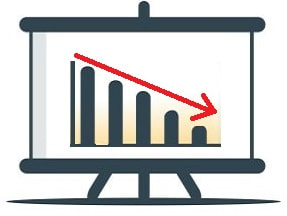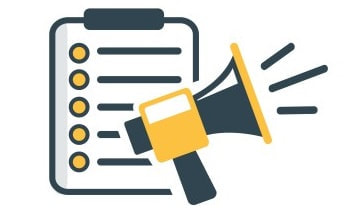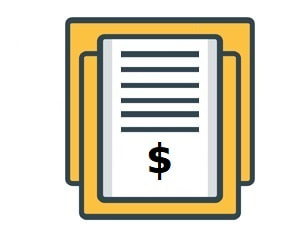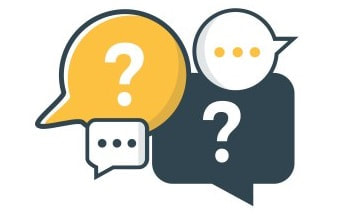How to Pay Down Debt Faster – the Definitive New Zealand Guide
Our guide explains why you want to pay down debt faster, the best methods for how you can do it and outlines key facts and frequently asked questions
Updated 1 November 2022
Summary
We cover:
- If you're juggling multiple debts, you may be so busy attempting to meet the minimum debt amounts that you don't consider how you're paying off your debt. Unfortunately, this can leave you carrying around debt for much longer than you'd like.
- With the Reserve Bank of New Zealand raising the Official Cash Rate (OCR) at a record pace, interest rates for all forms of debt have been racing upward with little hope of easing off. This policy change puts pressure on many New Zealanders that hold debt through credit cards, mortgages or instalments. The higher these interest rates, the more costly it becomes to repay these debts.
- One strategy that is particularly "top of mind" for New Zealanders right now is to pay off debts faster. This guide is published to provide a comprehensive overview of the available options.
We cover:
MoneyHub Founder Christopher Walsh shares his comments around paying down debt faster:"New Zealand has had 10+ years of 'cheap' money, via low-interest rates, since the 2008 global financial crisis. However, with inflation high, the days of low-interest rates are over - outstanding debt needs to be repaid. For many with mortgages and/or rolling over personal loans, this will be at a higher interest rate than when it was first borrowed".
"Too many lenders in the personal space make their money from 25%+ p.a. interest rates which see their customers take a lifetime to repay their debts. This BusinessDesk story features MoneyHub extensively and isn't uncommon. We want you to be debt-free and avoid the traps that drag down hundreds of thousands of hard-working New Zealanders". "The more debt you have (and the higher the interest rate associated with that debt), the more expensive it will be to repay the debt. If you take on more debts at ever-increasing interest rates, the monthly costs can become crippling". "Paying down debt faster will, in most situations, substantially reduce the overall amount of money you'll need to pay to banks and other financial institutions in the long run. This cost-saving can go towards other things, such as daily cost of living, travel/holidays, or investing and growing your wealth. By following this guide, there is a plan to minimise your interest costs as fast as possible". |
MoneyHub Founder Christopher Walsh
|
What are the Top Things I Can Implement to Pay My Debts Faster?
With the above in mind, we've listed the top things New Zealanders can do to pay down their debt faster. If you have any suggestions or tips you would like to share to help us improve this guide, please contact our research team.
Know what you owe, set clear goals and build a plan to pay off your debt.The first step before doing anything is to get the complete picture of your debt. For example, understanding what you owe, how much it costs to borrow (what interest rate you're paying) and how long it will take to pay your debt off if you continue to make no changes now. If you don't tally up your debts, then it's near-impossible to repay them at any pace.
The debt details you'll want to find and keep track of include the following:
Next Steps:
Know This: When setting up a plan to pay down your debt, it can pay to ask questions like “how much do you need to pay for requirements such as rent/mortgage, insurance, utilities, and food?” and “how much do you currently pay every month toward debt?”. |
If you can, try to increase your income.One of the top ways to pay off your debt faster is to increase your income. This approach is good because the additional income you generate (after paying taxes), assuming you don't increase your costs alongside this increase in revenue, can go 100% towards paying your debt down. Therefore, this method will allow you to pay down debt faster and increase your monthly cash flow. A few key ways to increase your income include:
1. Work more hours at your current job.
2. Getting a second job.
3. Start a side hustle.
For more information on side hustles in New Zealand, check out our guide here and here. 4. Ask for a raise at work.
5. Finding a better-paying job.
|
If you can't increase your income, the next best thing is to cut non-essential expenses.While the impact of increasing income is generally more significant than cutting expenses (as you can double or triple your income over time, but you can't cut your expenses to zero), cutting back on costs frees up money to pay down their debts by cutting expenses.
If you're determined to pay down debt, our view is simple:
|
Figure out which debt paydown method works best for you.People follow many different debt paydown methods when looking to reduce debt as quickly as possible. Two popular methods are the avalanche method and the snowball method. Both have their pros and cons (which we will detail below):
Avalanche Method: Pay down high-interest debt first, whilst paying minimum amounts on other debt.
Snowball Method: Pay down the smallest debt amounts first whilst paying minimum amounts on other balances.
|
Consolidate your debt into one account, preferably with a lower interest rate.Debt consolidation is the process of pooling different debts of varying interest rates into one single loan, ideally at a lower interest rate (however, this usually excludes mortgages as banks don't normally allow home loans to be rolled up with other forms of debt). Sometimes banks or lenders provide this option to their customers in an attempt to make it easier for the customer to stay on top of their debt payments.
It's much easier to manage and pay off a single debt balance than lots of debt balances of varying sizes, due dates and interest rates. In addition, by consolidating your debt into one or more loans, you're likely able to save a significant amount of money by paying less interest. One thing to be mindful of is that banks or lenders don’t provide debt consolidation without caveats. In some instances, consolidating your debt can lead to longer paydown periods that may incur more interest costs than if you hadn't consolidated your debts. In other instances, fees or expenses may be associated with setting up the debt consolidation loan, which can be costly and hidden in the terms and conditions. Again, the key is to continue with your debt repayment schedule and to and avoid incurring any new debts along the way. Next Steps:
|
Consider refinancing your debt.If you have a lot of debt on high-interest credit cards, consider refinancing your debt. This strategy can help to lower the amount of interest paid and help you pay down debt much quicker. Refinancing differs from debt consolidation as refinancing focuses on keeping the same number of debt accounts open, but just negotiating the interest rate associated with those debt balances. Debt consolidation is focused on reducing the absolute number of debt accounts you have and rolling them up into one (or fewer) debt account(s).
There are two main reasons you would try to refinance your debt:
You'll incur less interest over time by refinancing your debt at lower interest rates or getting better terms. As a result, you should be able to pay down the debt balances faster. Our debt refinancing calculator has more details as to how much money you can save. |
Consider a balance transfer to a low/no-interest credit card.If you have a high-interest-rate credit card and can't make the minimum payments, consider transferring your balance to a low/no-interest credit card. A balance transfer is where you transfer the debt balance from your current bank's credit card to another credit card provider. Usually, the credit card provider you're moving your debt balance to offers an "interest-free" period or a "low rate" (e.g. anything from 5% to 15% p.a.) for the balance until you repay it. This move can save you thousands in interest throughout the loan's life.
However, be mindful of balance transfer fees. Generally, balance transfers don't have fees associated with them at the main New Zealand banks. However, this may not be the case for all financial institutions. So it's important to check the introductory interest rate and what will happen at the end of that introductory period before deciding whether transferring balances is the right option for you. Additionally, note that there may be restrictions on the amount you can transfer over (usually up to 90% or 95% of the maximum credit limit of the card) and a restriction on the number of times you can do a balance transfer (at some banks). Finally, it's important to note that any additional purchases you make with the new credit card to which you've transferred your balance will be at the standard interest rate (around 20%+ for most banks) and will not be eligible under the "interest-free" period. Therefore, avoiding spending on the new balance-transferred credit card is suggested until you've paid the debt balance in full. Next Steps: Our guide to balance transfers has more details |
Sell assets and use the money to pay off debt.Whether downgrading your current cars or selling off your boat that doesn't get used, one easy way to generate cash flow to pay down your debts faster is to sell your existing assets. Many New Zealanders will have things lying around the house that they're probably not using.
Know This: Generally, if you have items worth more than what they cost, consider selling them. Likewise, if you have items you don't use much anymore, consider selling them. However, it's important not to sell anything that could be useful in the future or has significant sentimental value to you. Our guide to selling items on Trade Me for maximum value has more information. |
Put any additional money you have toward paying down your debt.Whether from a bonus, savings, tax return or inheritance, consider using your excess money to pay off high-interest debt. Doing so will save you significant cost savings in the interest not incurred. Generally, the interest you would have paid on that debt will be greater than any return you get from investing in stocks or interest earned from a term deposit or savings account.
However, you always want to have money on hand in case something unexpected arises, such as your car breaking down or a medical emergency. Therefore, it's generally recommended not to dip into your emergency fund (also known as a "rainy day" fund) when looking to put additional cash towards paying down debt. Instead, check out our guide for more information on structuring your emergency fund. |
Pay more than the minimum repayment amount each month.Debt providers will calculate the minimum repayment based on your interest rate and account balance. The higher your interest rate, the faster you’ll pay off your debt by paying more than this minimum amount.
Generally, it's in a debt provider or credit card provider's interest to get you paying it off as slowly as possible as this generates more interest income for them over the course of the loan. To pay as little interest as possible, try to pay down more than the minimum required payment amount each month. There isn't a "right answer" for how much more you should pay above your minimum balance. Factors such as how much extra money you have after each month, your risk tolerance and the overall interest rate you're paying on the debt will be all factor in. However, generally, adding $50 or $100 above the minimum payment can have a drastic impact on shortening your debt payback period. |
Must-Know Facts about Paying Down Debt Faster
Don’t wait to get started - start now.The longer you wait to act on paying down debt, the more interest you're incurring. Compound interest doesn't wait; each second you spend in the sub-optimal strategy will build that debt balance a little bit larger. You can get informed as fast as possible and act on paying down your debt faster. The faster you pay off your debt, the closer you get to financial freedom.
On a similar thread, you can find more information about financial independence and early retirement (known as FIRE) here. |
Watch out for hidden fees.In debt paydown, many credit providers can be crafty in incorporating their fees. However, many will have additional fees buried in the terms and conditions once you trigger certain situations (such as overdraft, missing repayments or changing your debt paydown programme). So be on the lookout for these hidden fees and ensure you're not incurring unnecessary costs when doing debt consolidation or balance transfers.
|
Keep a record of when your interest-free period ends (if you're utilising balance transfers).When executing multiple balance transfers and debt consolidations, keeping track of the various interest rates and interest-free periods can be hard. For example, some may be interest-free for six months, whilst others can be interest-free for 24 months. However, having a clear record of when your debt will start to incur interest is crucial to ensure you know which debts you need to prioritise (and which debts you could leave till later).
Generally, if the debt is in an interest-free period, you should focus on paying down other high-interest debt balances before you pay down that debt. However, debt can roll off interest-free periods and suddenly become one of your highest-interest debts. This transition is why it's important to keep a clear record of your debt balances and when (if applicable) those interest-free periods end. |
Don’t be afraid of debt.While debt gets a (somewhat justified) bad reputation for not being financially prudent, sometimes debt can be useful for building wealth and establishing a healthy relationship with debt. Whether building a credit score to get a mortgage or improving short-term cash flow management, debt can be useful in some situations.
For example, having debt that you pay off each month will build a good credit score over time, which will likely lead to lower interest rates when you take out a mortgage. In addition, this approach would save you thousands of dollars in interest that you would otherwise have incurred if you had a poor credit score (due to a lack of debt history). However, there are very clear risks to those New Zealanders who can't manage their debt balances. Debt can quickly increase one's financial risk and snowball out of control. Therefore, it's important to understand how debt works and use it prudently. |
Focus on the interest rate rather than the debt balance.It can be daunting to think about how much money you'll need to pay off to become debt free. However, try to focus on chipping away at the high-interest-rate debts you're paying rather than the actual balance itself.
However, interest on even a small debt can grow quickly, so if you have multiple debts to pay off, consider paying the ones with the easiest interest rates first after making all your minimum payments. Our calculator could help with this. |
Don’t forget to celebrate small successes along the way.Debt paydown can be a long journey, but if you're chipping away at reducing your debt day by day, you're heading in the right direction. Celebrating the small wins every now and then (like when you've paid off X amount or Y% of debt in the year) can help motivate you to become debt-free.
|
Frequently Asked Questions
I've paid off all my debts and am finally "debt free" What should I do now?
Congratulations; it's not easy to get out from under a debt mountain. But, after you've paid off your debt, the next step is to focus on building your wealth and retirement savings. For more information on savings and investing, check out our guides here and here.
Are there any good budgeting methods to ensure that I’m saving enough?
One of the most popular budgeting strategies is the 50/30/20 approach, which aims to simplify budgeting into three easy buckets. The 50/30/20 approach is broken down as follows:
While the above touches on spending, it's important to note that you can adjust these figures to suit your lifestyle. Some New Zealanders may want to pay down their debts faster, so they would only spend 10% on non-necessities and increase their debt paydown to 40%.
- First, spend 50% of your income on things you consider necessary.
- Secondly, Spend 30% of your income on what you want (non-necessity).
- Finally, spend 20% of your income on the things you are saving for or paying off debt.
While the above touches on spending, it's important to note that you can adjust these figures to suit your lifestyle. Some New Zealanders may want to pay down their debts faster, so they would only spend 10% on non-necessities and increase their debt paydown to 40%.
Should I just be paying off the minimum amounts if I need extra cash for daily living expenses?
Paying the bare minimum amount means the debt can continue to grow (or not reduce in size as fast) and lead to you paying off more in interest over the life of the loan. However, paying the minimum amount is fine if you're struggling with living costs and need to make ends meet. Paying down your debt ensures that you're not defaulting on your debt, building a credit score and ensuring that you're on top of your payments whilst providing for yourself and your family.
What happens if you fail to make your debt payments and default on your debt? Is defaulting on my debt an option? Will I be able to get into debt if I've been made bankrupt?
Generally, your bank will notify you that you've missed a minimum payment. They will either charge you an additional fee or increase the interest rate you're paying on the debt. Additionally, your credit score may suffer as a result. For more information on credit card minimums, check out our guide here.
What kind of debt can I consolidate?
You can consolidate many different types of debt. The top three most common types of debt that New Zealanders consolidate together include:
- Personal loans
- Car loans
- Credit cards
I'm struggling and don't think I'll be able to make ends meet. This debt burden is crushing me right now – what can I do?
The first step is recognising that getting out of debt is not an overnight process. Take a breath and try to set up a plan. For the all-encompassing guide to getting assistance when going through financial hardship, check out our guide here. Check out the definitive guide for more information on tackling debt and getting help.
What's the optimal way to get out of debt the fastest?
There really isn't any "best way" to get out of debt quickly that works perfectly for everyone. Following the advice in this guide is a good starting point, but there are many different ways to tackle debt. The more tips you can apply, the faster you will get out of debt.
Can I take out my KiwiSaver to pay down my debt?
Generally, you won't be able to take out your KiwiSaver early unless you fit specific criteria, such as buying your first home, moving overseas or financial hardship. For more information on the criteria necessary to qualify for early withdrawal through the KiwiSaver Hardship option, check out our guide here.





















